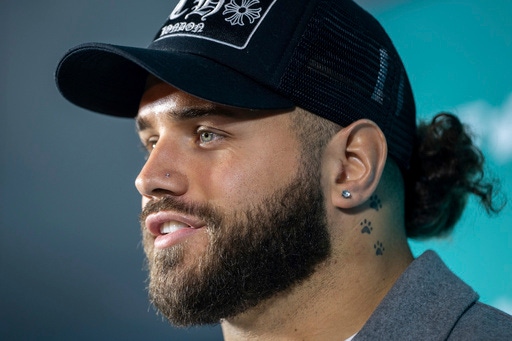World
IIHF – Canada takes control of Group A

The drama intensifies. With a hard-fought 3-2 win over Switzerland, Canada put itself in the driver’s seat in the race for first place in Group A. The Canadians, whose three goals all came on the power play, currently lead the group with 17 points.
On Tuesday, the Swiss (14 points) wrap up their preliminary round versus Finland, while the defending champion Canadians battle host Czechia (15 points). Canada can clinch Group A by beating the Czechs.
“The Czechs have been having an unbelievable tournament, and we’ve been playing strong also,” said Canada’s Dawson Mercer. “It comes down to a final battle there in the round-robin, and I think it’ll be a really good match.”
Sunday night’s outcome hinged on Swiss ace Kevin Fiala’s second-period kneeing major and game misconduct, which opened the door for Canada to score twice with the man advantage.
For Canada, Dylan Cozens scored two goals, tying him with Finland’s Oliver Kapanen and the U.S.’s Brady Tkachuk for the tournament goals lead (six), and added an assist. Nick Paul had a single. Captain John Tavares had two assists and Andrew Mangiapane, the 2021 tournament MVP, had three helpers.
“We just played hard, won battles, made it difficult for them to get scoring chances around our net, and obviously capitalized when we got our chances,” said Tavares.
Swiss scorers included Fiala and Roman Loeffel. Swiss captain Roman Josi added an assist and leads all defenders with 11 points.
In net, Canada’s Jordan Binnington and Switzerland’s Leonardo Genoni each made 20 saves.
“We had some good looks,” Swiss star Nico Hischier said. “I think it was just a fun hockey game all around. It was a really intense game. Yeah, they scored one more goal, but we can take good things out of it.”
Canada boasts an all-time World Championship-leading 28 gold medals, including two of the last three titles (2021, 2023). Coming off a 5-3 comeback win over Finland, this was another important test for coach Andre Tourigny’s troops.
Switzerland – winners of silver medals in 2013 and 2018 – won their group the past two years, but crashed out in the quarter-finals.
In front of a vocal, overwhelmingly pro-Swiss crowd, the Canadians sent a physical message on the first shift as a forechecking Brandon Tanev laid the body on Josi.
More importantly, Cozens drew first blood at 1:42 on the power play. A Tavares shot attempt caromed off Swiss defender Dean Kukan into the left faceoff circle, and Cozens snapped the puck under the cross bar. That quieted the fans briefly, but chants of “Hopp Schwizz!” soon rose again.
Tavares praised Cozens: “You just can see him really grabbing the game, wanting the puck and wanting to be a difference-maker, but not trying to try to do everything himself and be high-risk. He continues to have good habits. He’s obviously got great awareness out there of where the open ice is, and he uses his ability, whether it’s his skating, his poise or his shot.”
Nearing the midway mark of the first period, the Swiss picked up their tempo, and Fiala thumped Connor Bedard into the neutral-zone boards. The 18-year-old Chicago phenom, named the inaugural IIHF Male Player of the Year in 2023, is goalless in three games after scoring five in his first three Worlds outings.
With Jamie Oleksiak in the box for elbowing, Switzerland’s stars came through. Josi sent a quick cross-ice pass to Fiala, who sent a laser past Binnington at 11:15.
The second period started slowly as coach Patrick Fischer’s squad wasted a man advantage with Oleksiak off again for putting the puck over the glass in Canada’s zone. But Loeffel reignited the Swiss fans when his centre-point one-timer caught Binnington off-guard for a 2-1 lead at 5:03.
Just after the six-minute mark, a melee erupted at centre ice. After Fiala caught Cozens with a reckless knee, Canadian defenceman Kaiden Guhle skated over and laid a high cross-check on the Swiss forward. Both plays were video-reviewed. Fiala was ejected, while Guhle got a minor.
At 8:46, after the 4-on-4 became a Canadian power play, Cozens tied it up on the rush, taking a pass from Tavares and zapping the puck over Genoni’s glove.
Switzerland had a huge chance to go ahead agai when Bedard hauled down Calvin Thurkauf on a shorthanded breakaway. Sven Andrighetto was chosen to take the ensuing penalty shot, but Binnington denied him with the blocker.
Paul put Canada up 3-on-2 at 10:39 as the power play continued. The Canadians worked hard to keep the puck in the Swiss zone, and Cozens went cross-ice to Andrew Mangiapane, who found the Tampa Bay veteran at the crease for an easy tap-in.
“Obviously, I think we took advantage of getting those power plays and scoring on them,” said Mercer. “It’s a big part of the game.”
The teams traded chances with end-to-end action. Seconds after Binnington lunged across to foil Kurashev on the rush, Genoni was there to deny Jack McBain’s backhand move on a breakaway.
In the third period, the Swiss power play continued to struggle in Fiala’s absence, squandering two opportunities. Although Canada couldn’t convert with Dario Simion off for tripping, it took valuable time off the clock.
After Fischer pulled Genoni for the extra attacker, Canada iced the puck repeatedly, and the Swiss couldn’t find the equalizer.
Switzerland, which never defeated Canada at the Worlds until a 4-1 decision in 2010, has become one of the motherland of hockey’s tougher opponents. The Swiss have won four out of the last six clashes with Canada, dating back to 2017.
However, in the “what have you done for me lately?” world of international hockey, it’s advantage Canada.









